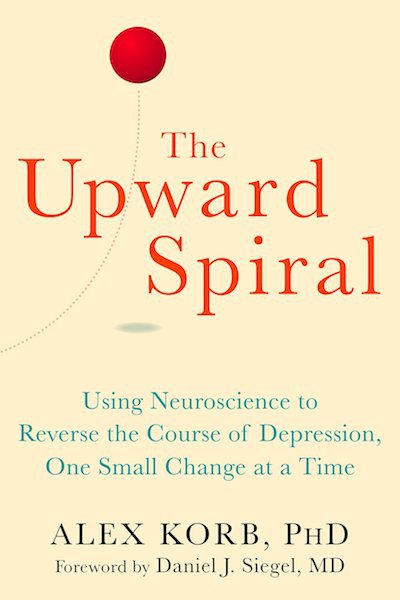

When I first came across research showing how developing a grateful mindset improved everything from our moods to our health, my first instinct was to reject it.
The idea that by simply focusing my attention on something positive was going to bring me that sense of lasting happiness I kept searching for seemed simplistic, at best.
But worse than that, gratitude felt like cheating on reality, like an act of denying the many things that weren’t great, or perfect, or even okay in my life.
Eventually, I began to make gratitude part of my life not because I changed my mind, but because I became desperate to find a different way towards feeling happier than through chasing achievements and success.
Still, even as I practiced, there were days, really bad difficult days when it felt like there was no place for gratitude. When I didn’t want to count my blessings. When I just wanted to wallow in the awfulness and the darkness.
bad difficult days when it felt like there was no place for gratitude. When I didn’t want to count my blessings. When I just wanted to wallow in the awfulness and the darkness.
As I was working on my book, I came across the work of Alex Korb, Ph.D., a neuroscience researcher and author of a great book, The Upward Spiral. When I interviewed him, he shared some insights that helped me gain a deeper understanding for why practicing gratitude doesn’t mean denying our difficult emotions or a challenging situation we might be facing. In fact, allowing ourselves to acknowledge everything that we feel and practice gratitude at the same time might offer us the resilience to get through many life storms.
I learned a lot from talking to Alex and I wanted to share some of the insights with you.
In your book, The Upward Spiral, you talk about activating our ‘gratitude circuit’. What is it and how does it work?
There’s a part of our brain called the anterior cingulate cortex. It’s responsible for drawing our attention to the details in our lives that are relevant in some way. Because there are literally hundreds of stimuli around us all the time, we can’t focus on all of them and our brain processes out anything familiar. Often, there are many good moments in the familiar but we don’t register them.
So to activate the gratitude circuit we simply have to give our anterior cingulate cortex the task of finding something positive. It’s literally like saying: “Be more on the lookout for positive things!”
So when we ask our brain to focus on the positive does it mean we’re denying anything that’s negative? This is something I’ve struggled with.
Not at all. I think people over-simplify what it means to focus on the positive. As human beings we can experience many emotions at the same time. We can be upset about what someone has done but still be able to focus on something positive about them, at the same time.
Practicing gratitude doesn’t mean denying difficult feelings that we feel. In fact, one of the key aspects of good mental health is accepting the full spectrum of our emotions without judging some as wrong or right. The more we resist negative emotions or try to control them, the more frustrated and anxious we feel.
Often we think that focusing on the positive means that we optimize for short-term pleasure. But that’s not always true. Say my friends are all going out and I’m staying in on a Friday night to study. It would be a lie to say that what I am doing is more fun. But it’s meaningful to me because I want to do well in school, So by focusing on the positive -- on that which is meaningful to me -- I am able to feel a little less sad about missing out on time with my friends.
Can you get used to gratitude? Can it lose its effectiveness over time?
We automatically get used to the situation we live in. So we get used to things like having a nice house, running water, food in the fridge. And this means that we have to put in more effort to remind ourselves that these things are special, something to be grateful for.
Happiness is based not on what happens, but on the difference between what happens and our expectations about it. If we expect to have a fridge full of food we won’t appreciate the abundance of food in our lives. And we won’t derive happiness from this abundance.
One of the things research has shown is that comparing our situation to those less fortunate doesn’t do anything for our emotional well-being. Thinking something like “There are kids in Africa are starving!” doesn’t work -- it just makes you feel guilty.
Instead, focus your attention on the many positive things in your own life that you might be taking for granted. Really simple things. What we focus on has a huge impact on how we feel.
What would you say to someone who is having a hard time sticking to a regular gratitude practice?
Gratitude is like flossing.
When I was in college, a girl told me that flossing was fun. This helped me re-frame flossing as something to be curious about rather than an annoying obligation. I tried to do it for a week, then forgot, but came back to it. After three weeks it became more natural.
This works with gratitude too. Be curious about it, approach it as something fun and enjoyable. Also, set a firm intention to stick with it. Habits get more and more indelible in the brain, like ski tracks through the snow. If you’ve established an intention and you keep doing the action, whenever you stray from your habit, it’s easier to remember to go back.
To learn more about Alex Korb’s research and his book, The Upward Spiral, please visit his website at https://alexkorbphd.wordpress.com/.
Don't miss your happier boost!
Subscribe to our weekly email to get practical tips and inspiration to help you feel more joyful and resilient.


